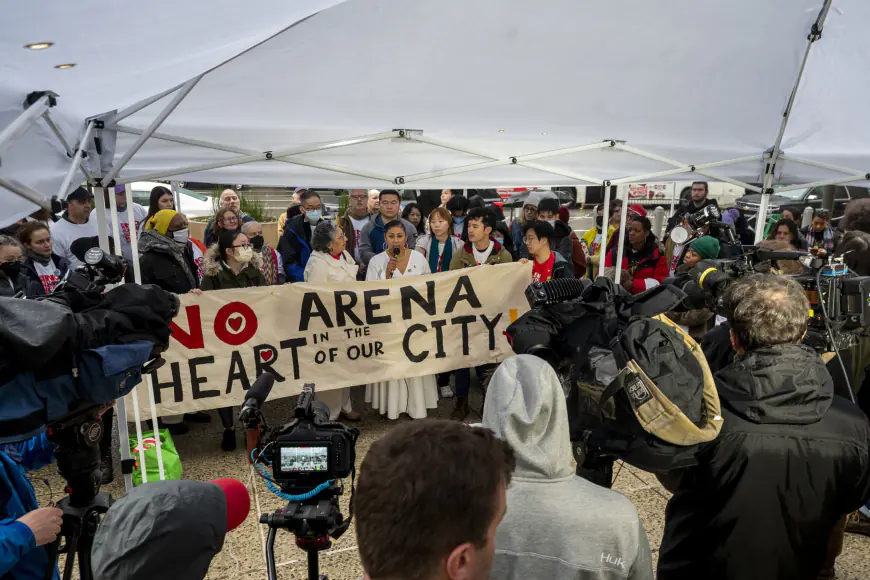76ers win city council nod to build $1.3B downtown stadium and leave South Philadelphia
PHILADELPHIA (AP) — The Philadelphia 76ers won city council approval on Thursday for a $1.3 billion downtown arena despite vocal…

PHILADELPHIA (AP) — The Philadelphia 76ers won city council approval on Thursday for a $1.3 billion downtown arena despite vocal opposition from nearby Chinatown residents and other activists.
Council voted 12-5 to approve the project at a packed meeting at City Hall. Owners of the NBA team hope to move in to 76 Place by 2031. However, opponents say the fight is far from over.
Mayor Cherelle Parker, a Democrat who had championed the plan, said the entire city will benefit from what she called a “historic game-changing economic development project,” according to The Philadelphia Inquirer.
Supporters hope the 18,500-seat arena can help revive a distressed retail corridor called Market East, which runs from City Hall to the Liberty Bell. The area has struggled for years despite several redevelopment efforts.
The team owners, Harris Blitzer Sports & Entertainment, are eager to end their Wells Fargo Center lease with Comcast Spectacor in South Philadelphia. They have pushed for city approval by year’s end so they can meet their target opening date.
They vowed not to ask the city for any construction funding, although they are free to seek state and federal funds. Instead of property taxes, they would pay about $6 million in annual Payments in Lieu of Taxes.
Protesters who locked arms on the council floor and delayed the start of the Thursday’s meeting said they would continue their fight.
“The mayor and City Council kowtowed to the billionaires’ artificial timeline,” said opponent Mohan Seshadri, a member of the No Arena Coalition who also serves as executive director of the Asian Pacific Islander Political Alliance.
Opponents fear the arena will bring gridlock on game days – and go dark at other times – and also bring gentrification and rising rents to the area.
The Chinatown community has fought a series of proposed developments since the 1960s, including casinos, a prison, a baseball stadium and a highway, the last of which dissected the neighborhood when it opened in 1991.
Council members on Thursday approved 11 bills that address zoning changes, land transfers, public safety and other issues to accommodate the 76ers’ plan.
What's Your Reaction?









































































































